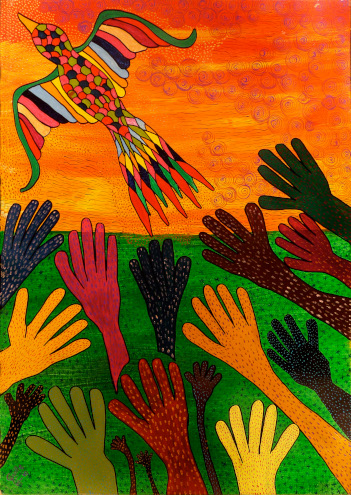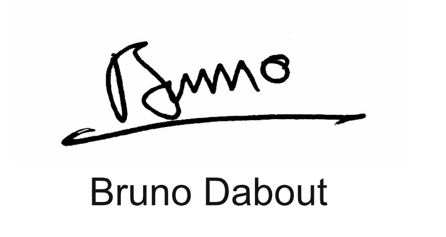Stopping the Cycle of Poverty

Message from Bruno Dabout, Director General ATD Fourth World International
“People in extreme poverty only reveal their feelings when they trust what they say changes the behaviour of those they are talking to.”
Joseph Wresinski, 1983
Josefina
Josefina kisses her sleeping children. Her husband has already left for the fields. She is about to journey from her village to the town of Cusco. There, the ATD Fourth World Volunteer Corps members are waiting for her, as she has agreed to attend an ATD Fourth World program.
On the bus she is thoughtful, her forehead against the jolting window. When she comes back home, how will she manage the two weeks of strict quarantine imposed by the pandemic? Life has become so complicated. The schools have closed, and people in poverty have been chased out of the town by a lack of food.
- “Because there is no internet in the village where I live, I had to go to Cusco so I could participate online. I really want to be part of this program, because in these meetings, I come alive, and I find more energy. It’s so important for me that I am included. I forget my troubles. Everything that I learn enables me to stand on my own two feet!”
Merging of Knowledge
The program that Josefina is a passionate advocate for is a training initiative that follows the Merging of Knowledge methodology. It has been through a partnership between ATD Fourth World and the Autonomous University of Mexico, and is offered in several Latin American countries. Josefina likes to meet up with the other participants: her “brothers and sisters”, as she calls them. Others whose voices, like hers, are not usually listened to. In these sessions, she also meets and engages with people with a formal education: university professors, for example, and those involved in community development.
Two years earlier, when the program began, nothing was certain. One of the participants remembers:
- “I had already spoken to students and professionals and it is very difficult. They practically never let anyone else talk. They think that we have no knowledge at all. So was I going to be able to share my knowledge?”
Building on the achievements
However, by building on the achievements of popular education in Latin America and creating inventive solutions, new and positive exchanges have begun to take place between people of different backgrounds.
“We are all teachers and students for each other, with or without qualifications. That’s what Merging of Knowledge is.”
Josefina
Of course, there have been plenty of obstacles, as she describes: “When I had an operation, I had to leave the children behind. I could have died. It affected my family so strongly; it was like the end of the world.” But Josefina also expresses her gratitude to the Volunteer Corps members who were always close to her and “allow those who are downtrodden to stand up”. And for everyone who knows her, her perseverance is admirable.
Today the Merging of Knowledge program has reached its end, and the last session finally brings together in-person all the participants at the Xochimilco campus of the Autonomous University of Mexico. The atmosphere is colourful and joyous, yet the participants remain conscientious–laughter and emotions sometimes break out. As one participant puts it:
“Despite the label that society gives us, we are influential, and we are taking part in our community”.
Josefina hugs her certificate tightly, and imagines how proud her children and husband will be when she gets home. She starts back on the road that leads to her family and reflects:
- “When you make a commitment, you have to get up every day with the hope that one day we will get out of this spiral of poverty, don’t you? I know that poverty is not just a question of money. Struggling against it, is also about emotions, feelings, communication and knowledge. I keep taking part in everything that I can, contributing what I know. As much as I possibly can, I am present.”
We need your support!
Dear friends,
Merging of Knowledge has two fundamental principles:
- Each person, no matter their background, has the capacity to think and contribute to society
- In the case of extreme poverty, academia lacks the knowledge found at the grassroots level and, most importantly, the knowledge of people in situations of poverty.
The Merging of Knowledge program developed by ATD Fourth World and the Autonomous University of Mexico — the program completed by Josefina — is based not only on the work of ATD Fourth World, but also on the pioneering contributions of participatory research and popular education from the works of Paulo Freire and Orlando Fals Borda.
Merging of Knowledge allows us to create programs with an impact because they are thought out with the contributions of people with a lived experience of poverty. We want to continue developing programs in partnership with people in poverty, but we need donors and friends to believe in this with us and offer their support. We’re counting on you!


